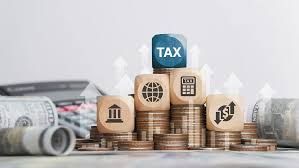Now Reading: Exploring Tax Benefits for Real Estate Investors in the UAE
-
01
Exploring Tax Benefits for Real Estate Investors in the UAE
Exploring Tax Benefits for Real Estate Investors in the UAE

Table of Contents
Exploring Tax Benefits for Real Estate Investors in the UAE
The United Arab Emirates (UAE) has established itself as a premier destination for real estate investment, offering a tax-friendly environment that attracts both local and international investors. In 2025, the UAE continues to provide a range of tax benefits that enhance the profitability and appeal of its real estate market.

1. Absence of Personal Income and Capital Gains Taxes
One of the most compelling reasons for investing in UAE real estate is the absence of personal income tax. Residents and investors do not pay tax on earnings, including salaries, dividends, and rental income. Additionally, the UAE does not impose capital gains tax on the sale of properties, allowing investors to retain the full profit from property sales without deductions .
2. No Federal Property Tax
Unlike many global markets, the UAE does not levy a federal property tax. This absence of annual property taxes means that investors can hold properties without the burden of recurring tax liabilities, enhancing the overall return on investment .
3. Favorable Tax Treatment for Investment Funds

The UAE has introduced regulations that provide preferential tax treatment for Qualifying Investment Funds (QIFs). Income generated by QIFs is exempt from UAE corporate tax, provided certain conditions are met, such as maintaining a minimum percentage of real estate assets and ensuring ownership diversity. This framework encourages institutional investment in real estate, contributing to market liquidity and growth .
4. Exemptions on Transactional Taxes
While the UAE offers a tax-efficient environment, investors should be aware of certain transactional costs:
- Property Registration Fee: A one-time fee of 4% of the property’s value is payable to the local land department upon purchase.
- VAT on Commercial Properties: While residential properties are exempt, commercial properties are subject to a 5% Value Added Tax (VAT) .
These costs are relatively low compared to property taxes in other global markets, maintaining the UAE’s attractiveness as an investment destination.
5. Mortgage Interest Tax Deductions
For UAE nationals and expatriates who are tax residents, mortgage interest paid on residential property can be claimed as a tax deduction. This deduction is capped at AED 3 million over a maximum period of 15 years, providing financial relief to homeowners and encouraging property investment .
6. Long-Term Residency Visas for Property Investors
Investors purchasing property worth AED 750,000 or more are eligible to apply for a residency visa, which can be extended for up to 10 years, depending on the value of the investment. This initiative not only provides tax benefits but also offers investors the opportunity to reside in the UAE, further enhancing the appeal of property investment.
7. Exemptions for Residential Property Sales
UAE nationals and expatriates are exempt from capital gains tax on the sale of residential properties they have owned for more than three years. This exemption facilitates wealth accumulation and estate planning, making residential property a favorable investment option .
Conclusion
The UAE’s tax advantages—such as the absence of personal income and capital gains taxes, no federal property tax, favorable treatment for investment funds, and exemptions on transactional taxes—create a conducive environment for real estate investment. Combined with mortgage interest tax deductions, long-term residency visas, and exemptions for residential property sales, these benefits position the UAE as a leading global hub for real estate investors seeking tax efficiency and robust returns.
The UAE continues to solidify its status as a global hotspot for real estate investment, with its tax-friendly environment playing a central role in attracting both domestic and international investors. The absence of personal income tax, capital gains tax, and annual property taxes offers a level of financial freedom and profitability that is difficult to match in other major global markets.
In 2025, additional incentives such as exemptions for qualifying investment funds, deductions on mortgage interest, and tax-free residential property sales further enhance the country’s appeal. When paired with long-term residency options like the Golden Visa, these benefits make the UAE not only an investment haven but also an attractive destination for those looking to live and build wealth in a stable, forward-looking economy.
As global investors seek locations that offer high returns with minimal tax burdens, the UAE’s real estate sector stands out as a strategic choice. With continued government support, robust infrastructure, and a strong legal framework, the tax advantages for real estate investors in the UAE are not just financial perks—they are key drivers of long-term opportunity and growth.
WATCH MORE:https://www.instagram.com/iamlegalbaba/reel/DH5skpvPcYz/
READ MORE: UAE Luxury Real Estate: Insights into the High-End Property Market in 2025





















